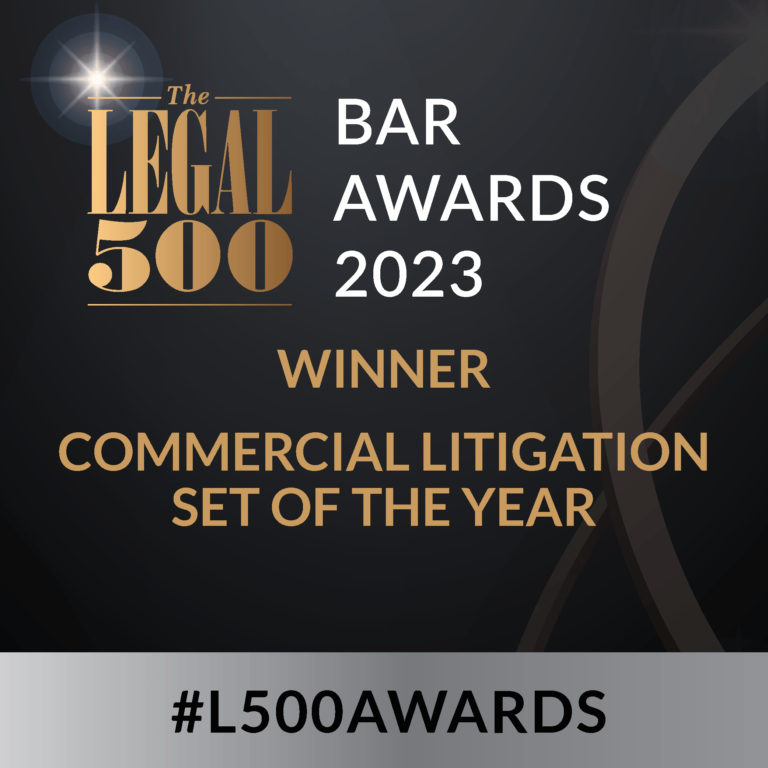Andrew Onslow QC and Calum Mulderrig succeed in resisting a strike out and summary judgment application in an important decision under s.90A and Schedule 10A of FSMA
Andrew Onslow QC, leading Calum Mulderrig and Shail Patel (4 New Square), have succeeded in resisting a strike out and summary judgment application brought by G4S Limited (formerly G4S plc) (G4S) in respect of underlying claims under s.90A and Schedule 10A of the Financial Services and Markets Act 2000 (FSMA). Andrew and Calum were instructed by Chris Warren-Smith, Paul Mesquitta, Keir Baker and Edward Cook at Morgan, Lewis & Bockius UK LLP.
Under s.90A and Schedule 10A of FSMA, a civil liability regime has been established for issuers of publicly traded securities for the publication of false, misleading or incomplete information, or for the dishonest delay in the publication of information, to the capital markets. Liability can only be established where a “person discharging managerial responsibility” (PDMR) within the issuer knew or was reckless about the offending statement, or dishonestly concealed facts, or where a PDMR acted dishonestly in delaying publication of relevant information.
Andrew and Calum act for institutional investors in three s.90A / Schedule 10A FSMA claims against G4S plc (the Claimants). In these three claims the Claimants argue that information published by G4S in the market contained untrue and misleading statements, those publications omitted certain information, and G4S dishonestly delayed in the publication of certain information, with the result that the Claimants are entitled to compensation under FSMA.
The strike out application brought by G4S centred on the meaning of the expression PDMR, and on G4S’s argument that four named individuals in the Claimants’ claims were not PDMRs of G4S. G4S argued that on the correct interpretation of s.90A and Schedule 10A of FSMA, only “directors” of an issuer could be PDMRs (including de facto and arguably shadow directors, as well as de jure directors). G4S further argued that the Claimants did not allege any facts that would enable the court to conclude that any of the contested PDMRs were “directors” (de facto, de jure or shadow), or that the Claimants had pleaded that those four individuals were de facto directors. Accordingly, G4S argued that the relevant parts of the Claimants’ case alleging that these four individuals were PDMRs should be struck out or dismissed summarily (given that none of them was alleged by the Claimants to be a director of G4S).
In response, the Claimants argued that the term PDMR was not restricted to “directors” but, on proper construction of the relevant provisions of FSMA and in its relevant European and English law statutory context, the term also included senior executives responsible for managerial decisions affecting the future developments and business prospects of the issuer and/or those business units. In any event, assuming that G4S’s interpretation of PDMR was correct, the Claimants argued that they had pleaded that the four contested PDMRs were de facto directors of G4S, there was an adequate evidential basis for that pleading, and the claims had real prospects of succeeding on that point at trial. Finally, the Claimants argued that there were otherwise compelling reasons for the Court to hear the claims at trial, and that it was therefore inappropriate to strike out, or to grant summary judgment in respect of, those claims.
In his judgment, Mr Justice Miles rejected G4S’s strike out and summary judgment application. The judge determined that the definition of “directors” in s.90A and Schedule 10A should be construed in the narrower company law sense favoured by G4S (which included de facto directors) and should not be given the Claimants’ more expansive interpretation. However, the judge accepted that the Claimants had adequately pleaded that the four named individuals were de facto directors of G4S, and that there was an adequate evidential foundation that supported the Claimants’ case in that regard. In reaching that conclusion, the judge noted that whether a person is a de facto director of a company is intensely fact-specific and that particular attention would need to be had to the corporate governance structure of G4S. On that latter point, the Judge accepted that there was an adequate evidential foundation to conclude that the corporate governance structure of G4S was elaborate and complex, and that disclosure and witness evidence, as well as full scrutiny of the facts with the benefit of disclosure and witness evidence, would shed light on that structure and, in turn, the matter of de facto directorship of G4S. Mr Justice Miles therefore held that there was a real prospect of the Claimants establishing at trial that the four named individuals were de facto directors of G4S, dismissed G4S’s application, and concluded that the relevant parts of the claims should not be struck out or summarily determined.
Mr Justice Miles’ judgment is significant in the context of s.90A / Schedule 10A claims and provides important guidance on the previously untested question of who constitutes a PDMR under those provisions of FSMA. This guidance may prove especially useful in view of the increasing number of s.90A / Schedule 10A claims before the English courts.
A full copy of the judgment can be found here.











